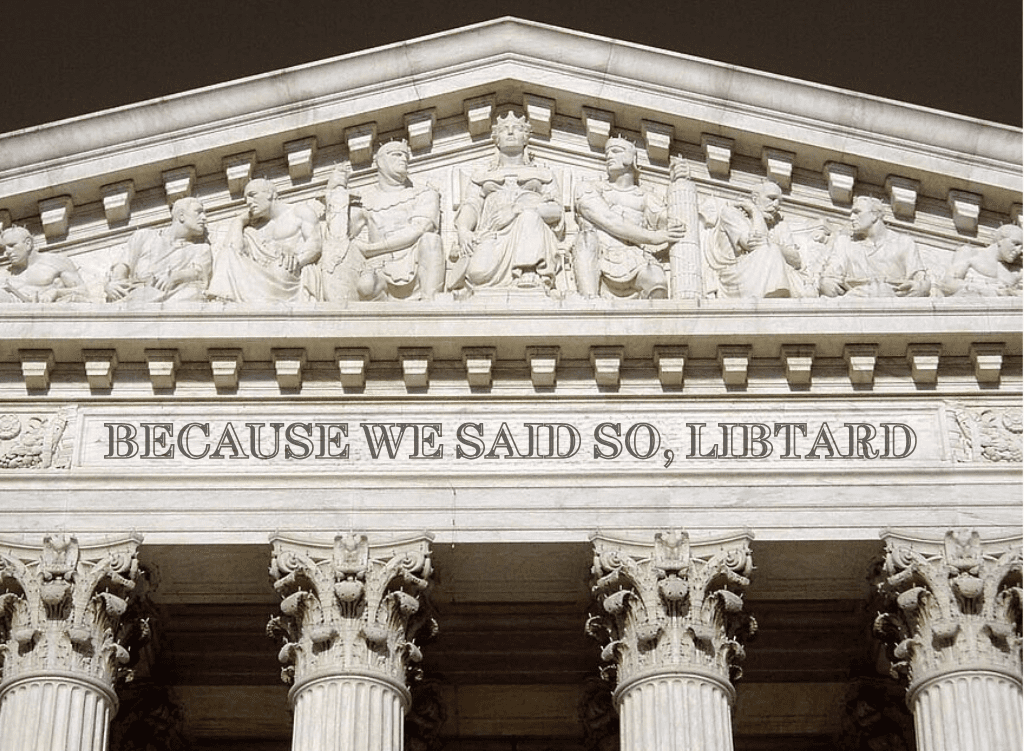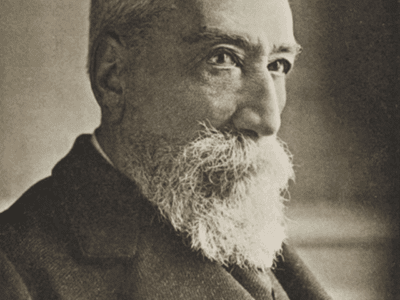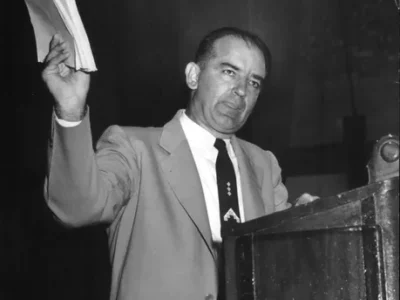The Unitary Executive Theory As Government-Smasher
The Supreme Court’s Imperial Presidency drive isn’t formalism: it is calculated to destroy the state.

It is a misnomer to discuss the current Supreme Court’s “jurisprudence” on anything, as if it has an approach to any legal question other than, “because we said so, libtard.” But in the wake of the Court’s lawless and arbitrary use of the shadow docket to destroy statutes and precedents for the purpose of giving Donald Trump greater power – and not even bothering to explain why – something did occur to me.
To the extent that there is any jurisprudence behind the Court’s destruction of the Department of Education, the Consumer Product Safety Commission, the Merit Systems Protection Board, and what will surely be environmental and public health agencies, it lies in the Unitary Executive Theory, a doctrine invented out of whole cloth by Antonin Scalia and other right-wingers in the 80’s and 90’s. The idea is that the executive power is invested in the President of the United States, so no statute can in any way disrupt the President’s “management” of the Executive Branch. In the Education Department case, it seems as if that the President has the untrammeled ability to fire any federal worker, whatever their level, whether or not they are “Officers of the United States” under the Appointments Clause.
Now, in classic fashion, right-wing jurisprudes will argue that this is totally Neutral Principles of Constitutional Law that can apply to any President, Democratic or Republican.
After you have stopped laughing – remember, this Court said that President Biden could not forgive student loans (granted him power by statute) but Trump could destroy the Department – let’s suspend disbelief and take right-wingers at their word. It still is intellectually dishonest.

Photo credit: Wikimedia Commons
First, liberals don’t *want* to fire everyone in agencies. We believe in institutions, in institutional memory, in expertise built up over years of experience (which is actually a “conservative” principle, but we are way past such an argument here). This really is the jurisprudential equivalent of Anatole France’s famous line that “[t]he law, in its majestic equality, forbids rich and poor alike to sleep under bridges, to beg in the streets, and to steal their bread.”
To say “both Democratic and Republican Presidents will have the right to sow chaos in federal agencies” – which is what the Unitary Executive Theory holds – gives the game away. (Chef’s kiss: they are arguing that Framers like Alexander Hamilton, who believed deeply in executive expertise, would have endorsed this).
Second, such an argument ignores the more subtle and pernicious second-order effects, namely: it undermines the ability of the federal government to recruit good people. Who in their right mind would go work for the government if they can be fired at the whim of whomever is in the Oval Office? It’s one thing if it’s, say, the Secretary of the Interior: you go to DC for four years and try to do something. But to cart yourself across the country to be, even a GS-15? People won’t do it. And that is the whole point.
Legal scholars have made a mistake by describing the Unitary Executive Theory as “formalism,” as a blind adherence to a theory about the nature of “executive” versus “legislative” versus “judicial” power unconcerned with outcomes. Nothing could be further from the truth. It is deeply concerned with outcomes. The same goes for “textualism,” which was designed so that statutes do not make sense. Both doctrines were created and are being advanced for the purpose of smashing the federal government.
Many years ago, Grover Norquist said, “I don’t want to abolish government. I simply want to reduce it to the size where I can drag it into the bathroom and drown it in the bathtub.” That is the purpose of the Unitary Executive Theory. And with this Court, it is working. Which means that smashing this Court is the only appropriate countermove.
Reader Comments
5 Replies to “The Unitary Executive Theory As Government-Smasher”
Comments are closed.







” …. smashing this Court is the only appropriate countermove.”
So how do we do that?
Court expansion. But of course we will need a trifecta.
Can an argument be made for impeaching individual Justices – and how could that be done …
I appreciate the thought and patience that went into this article. Reminded me how much history, including legal history, has a practical application. Thank you.
Are we certain they’re corrupt? I thought a lot of these cases were in a preliminary-ish phase? I haven’t given up hope yet that the Constitution will survive. I admit, I sit in the cheap seats and read almost none of the docs. (I did enjoy the recent dissents though!)
Here is my question though – does all this mean that the 1% *don’t* run society?
Because I wouldn’t have thought this orange swan thing would work out for them. So, I am officially a bit confused.